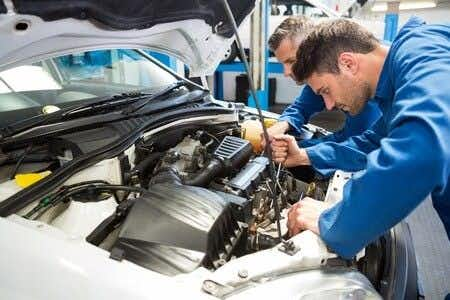The case takes place in New Jersey and involves a Plaintiff who was sold a car that had been rebuilt from scrap parts without their knowledge. The vehicle, which appeared to be a late-model American SUV, was represented by the Defendant as a brand-new vehicle. The Plaintiff purchased the vehicle believing this to be true. After owning the car for a few years, the Plaintiff decided to sell, and took the SUV to a dealership in order to have it appraised. It was at this point that the appraiser noticed that different parts of the vehicle were engraved with VIN numbers that did not match. The Plaintiff then began to investigate the origin of the parts, at which point the plaintiff discovered that they came from an older version of the same vehicle. The Plaintiff also discovered that the older parts had belonged to a car that had been reported as scrapped, and were not legal for road use. As a result, the car is now worthless, and the Plaintiff sued the car dealership under pertinent Lemon Laws, claiming that they would not have purchased the vehicle with the knowledge that it had been rebuilt.
Question(s) For Expert Witness
1. What checks are done to ensure VIN numbers match and are accurate?
2. Do you experience working on cases involving fraudulent VIN numbers?
3. Do you have knowledge of the proper protocols when selling used cars?
Expert Witness Response E-009513
I have more than 30 years of experience in the automotive industry. I am knowledgeable on various dealership departments including electronic data processing systems used by dealerships, and I am a member of several professional organizations including the American Institute of Certified Public Accountants and AICPA Section for Forensic and Valuation Services. I have handled previous cases involving fraudulent VIN numbers and can speak to the proper protocols when selling used cars. In this case, there were a number of checks that were not upheld by the car dealership. Good internal control by the Used Car Department is to check the VIN on the door and match it to the windshield VIN - of course, they should always match in a new car. There is an emissions sticker under the hood which is also used to verify that the engine is the right engine for the model and year of the car. When the car is registered they should see if the title has any branding on it which would indicate that the vehicle was totaled prior. Obviously, in this case these internal checks were either not performed, or were intentionally disregarded in order to make a fraudulent representation about this vehicle's value to the customer. Either way, this resulted in a dangerous car being placed back on the road when it shouldn't have been, and could easily have contributed to a fatal accident.
About the author
Joseph O'Neill
Joe has extensive experience in online journalism and technical writing across a range of legal topics, including personal injury, meidcal malpractice, mass torts, consumer litigation, commercial litigation, and more. Joe spent close to six years working at Expert Institute, finishing up his role here as Director of Marketing. He has considerable knowledge across an array of legal topics pertaining to expert witnesses. Currently, Joe servces as Owner and Demand Generation Consultant at LightSail Consulting.



